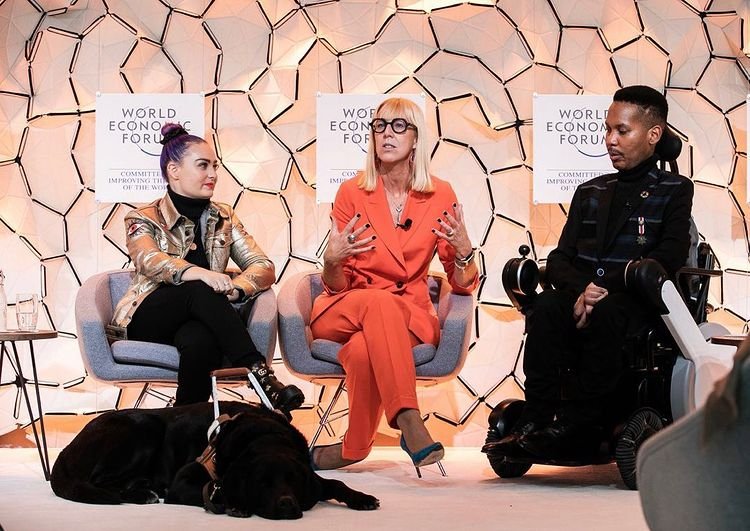The Twitter Logo with the quote “Twitter can not become the de facto Town Square Musk envisions at the expense of the accessibility that once made it great.” Attributed to Ryan Honick
If users want to emphasize how important the continued prioritization of accessibility actually is, we need to lean into one of the best parts about Twitter: how easy it makes it to amplify a cause.
-Alexa Heinrich, Adweek
For many disabled activists, Twitter has long been a place to connect, amplify, and create change. I owe much to a platform that allowed all of that to happen. Conversations with one-time virtual strangers turned into lifelong friends and allies, virtually and otherwise. The platform was never perfect, and detractors abound, but advocacy always faces pushback. Still, Twitter served as an important space where many found community and support as well as a direct line to key influencers; from journalists and brands to celebrities. Twitter was the first social network where it seemed accessibility was its foundation—in more ways than one.
Prior to layoffs, The Accessibility Experience Team was working on myriad projects focused on improving the user experience. For folks with visual disabilities, the team revamped its icons and automated reminders for the use of alt-text. The deaf community saw improvements with captions, and for those with sensory sensitivities Twitter updated its app sounds.
Unfortunately, all of that progress is poised to stop as Musk looks for ways to improve profitability following a number of high-profile advertisers rethinking their relationship with the platform. Companies including General Mills, Oreo company maker Mondelēz International and Pfizer Inc., have temporarily paused their Twitter advertising, according to The Wall Street Journal.
That pressure, coming from groups like Color Of Change, Free Press, the Anti-Defamation League, and GLAAD is the result of Musk haphazardly cutting teams dedicated to diversity, equity, inclusion, and access.
“We are witnessing the real-time destruction of one of the world’s most powerful communications systems,” Nicole Gill director of Accountable Tech told MarketWatch.
Sandra Sucher, a professor of management at Harvard University, told The New York Times Twitter’s cuts were among the most poorly handled that she had seen.
Speaking at an investment conference in New York Friday, Musk said: “Our goal is with Twitter, how do we get 80% of the public to join a digital town square and voice their opinion and exchange ideas and once in a while change their mind?”
With his latest actions, Musk is deliberately leaving out the 20% of the population with disabilities, setting Twitter up to become yet another inaccessible space where disabled people find ourselves unwelcome. Twitter can not become the de facto Town Square Musk envisions at the expense of the accessibility that once made it great.


